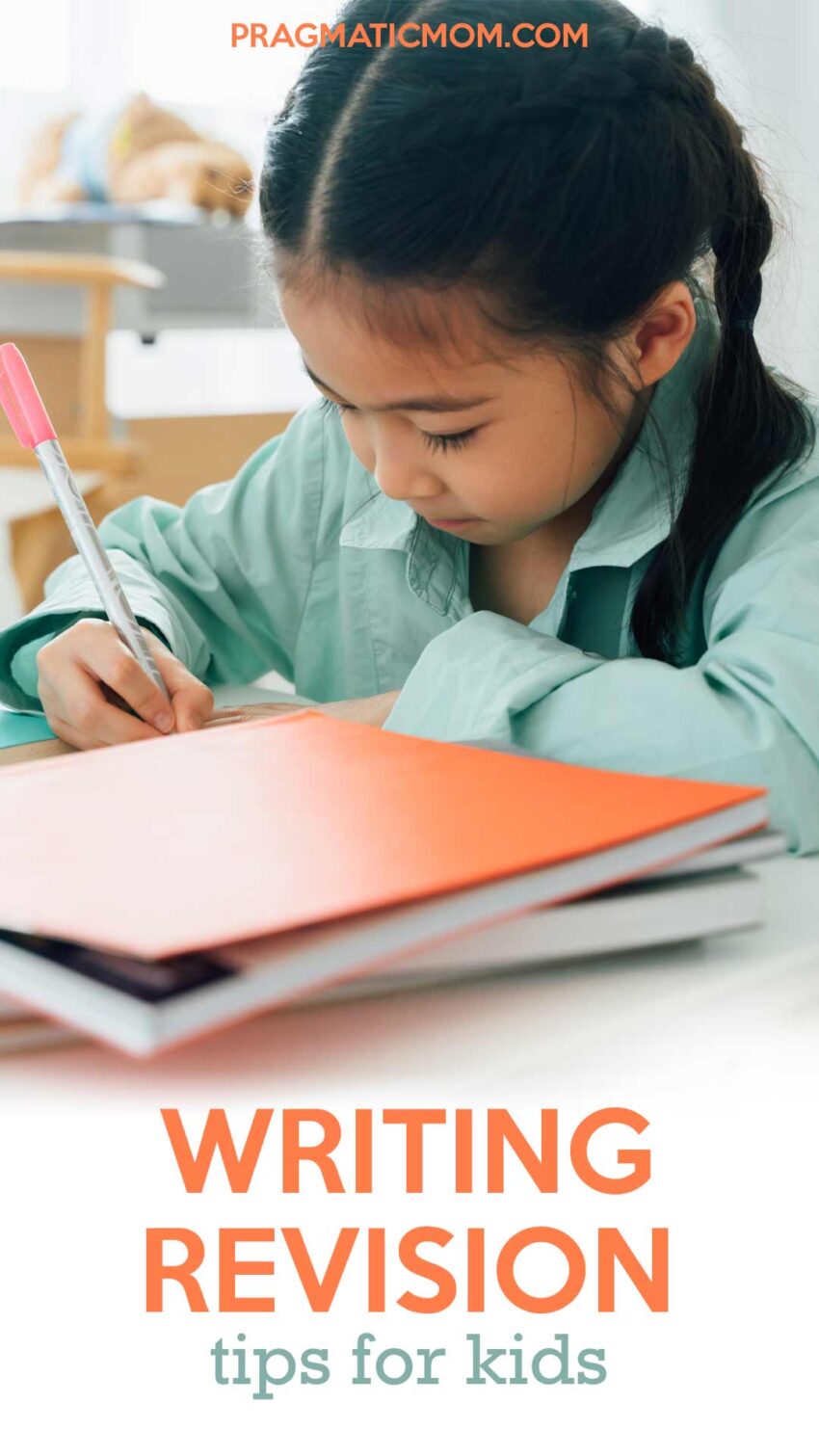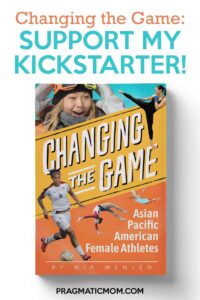Please welcome my guest blogger today, middle grade author Karen Day. She happens to live in my town and I’ve had the pleasure of seeing her at the dog park as well as on the soccer field when Grasshopper and Sensei was in 3rd grade — her youngest daughter was on the same team.
She’s been twice to our book clubs for kids. She taught my daughter, then in sixth grade, to write a Show Don’t Tell.
We also learned about the origins of her second book, No Cream Puffs. Indeed, it WAS Karen who was a star baseball player!
Her first book, Tall Tales, won a Texas BlueBonnet award.
Today, she’ll be covering Writing Revision Tips for Kids.
Writing Revision Tips for Kids
Earlier this summer a student sent me an email before the start of the fiction writing class she was taking from me and said, “My goal is to finish my novel without having to do any too many revisions.”
I flinched a bit when I read this. Mostly because I, too, wish I could write without having to revise so much! But I also think that I reacted because I hear this quite a bit from both the adult and teen writers who take my classes. If I have to revise, they tell me, then I’ve done something wrong. Or, they’ll say that revision is too hard. Too time-consuming. Too confusing.
Besides, why do I have to revise something that I’ve created?
My views of revision have changed quite a bit over the years and I’m a firm believer that no matter what you write, whether it’s a 300-page novel, a persuasive essay for school or a letter to the editor, revision is an important part of the writing process. In fact, knowing how to revise is the best writing tool you could have.
I think a lot of people are intimidated by revision because they don’t know how to do it. Certainly, I didn’t when I started to write. I thought revision was merely rearranging paragraphs or taking out exclamation points or cutting a few pages. But revision is more than that. It’s the ability to “resee” your work in new ways – to fall in love with a character or plot, maybe work on it for months, even years, but then get rid of it if it no longer works in your story. Sometimes it means changing a main character’s personality or coming up with a different plot. Sometimes it means rewriting major chunks of your work.
Now, I can’t wait to get to the revision stage of writing. For me, that’s where the real writing takes place. I find writing to be so difficult that my rough drafts are often full of holes, contradictions, poorly executed plots, and shallow characters. But in revision, I take my time and really work on crafting a story that makes sense. Sometimes, my revision process takes four times longer than writing the rough draft
When I talk to kids about revision, I often tell them that they should think of writing as would a sport or music. They wouldn’t expect to play a musical piece without practicing it a dozen times or more. They wouldn’t expect to throw a perfect curveball without pitching hundreds of baseballs. Writing is like that, too. When we write, we are practicing – what we want to say and how we say it. Then we perfect this message by revising – rewriting the words over and over and over. The more we do it, the better we get.
All writers, once they’ve been at it for a while, have their own revision strategies. One of the first things I do when I start to revise is take apart my manuscript, which is often more than 200 pages, into pieces. I make a list of all of the different threads in my manuscript. Then I take one thread at a time and follow it from beginning to end. This allows me to see where I’ve repeated myself and whether I’m constantly building toward some kind of resolution. If not, then I work on fixing it. When I finish, I take a different thread and do the same thing. It’s a time-consuming process but incredibly helpful for me.
I once heard the writer Julia Glass, author of Three Junes, say that she doesn’t revise when she finishes a draft, that somehow she revises as she writes. When she’s done, she’s done. I’m not sure what that looks like but I’m certainly envious! But I think most writers are like me, they need the extra time to explore – and practice – what they’re trying to say.
Karen Day is a writing teacher and author of middle grade novels Tall Tales, No Cream Puffs, and A Million Miles From Boston. Her novels have appeared on numerous lists, including Bank Street Educators Best Books of the Year and the Texas Librarian Association’s Bluebonnet Master Reading List. She has taught writing workshops at the Cape Cod Writer’s Center conference, the Chautauqua Institute and Grub Street in Boston. You can reach her at: www.klday.com.
p.s. Related posts:
My 5 Mentor Children’s Books for Writing an Alphabet Picture Book
Writing Tips for Kids Who Write for School Newspapers
Writing Tips for Children from NS Blackman
Getting Kids Involved with Creative Writing
Writing for Reluctant Readers by Ty Drago
Writing Charming Thank You Notes (FREE Printable): Day 12 of 12 Days of Shopping
Write Now Read Later: Summer Writing Prompts for Kids
Write First Read Later: Alien Writing Prompts for Kids
Middle School Writing: How to Use the COMMA
New Voices Competition #AmWriting
My First Picture Book Submission: Sumo Joe! #AmWriting
To view any book more closely at Amazon, please click on image of book.
As an Amazon Associate, I earn from qualifying purchases.
BEST #OWNVOICES CHILDREN’S BOOKS: My Favorite Diversity Books for Kids Ages 1-12 is a book that I created to highlight books written by authors who share the same marginalized identity as the characters in their books.















Hi Karen, Nice to meet you 🙂
I like your point about it being practice. That makes a lot of sense to me. I spent the early part of this year revising my latest novel (actually a process I quite enjoy); then I sent it to my editor who picked apart all my plot holes (youch!), so I’m now re-writing most of the book. Practice, practice, practice. Being a writer is hard work.
Hi Elle,
That’s a great point! Kids think that lots of revision means your writing is “bad” which is the opposite of what authors think so I’m glad to put it out there that revision really is the writing process. The more you revise, the more you are writing and the better your piece gets. No one gets it right the first draft (but who knew?!). We readers only see the finished wonderful product and not the years and years of work behind it. It’s always a fun revelation to learn how the book evolved. Even a picture book!!
Great tips for kids AND adults who write.
Thanks Karen!
Hi Cathy,
I find Karen’s advice on writing and revision so helpful too! Thanks for stopping by!
Revising is definitely the hardest part. I can’t believe anyone could write and not revise – that is amazing. I never feel that anything I write has enough eyes on it. My daughter is less cautious but she’s recently had to learn the importance of revisions.
Thank you for sharing with us!
Thanks so much Christine,
I think the message that revision is really the art of writing is something kids need to learn. Otherwise, they think of revision as “fixing mistakes.” It’s really not mistakes; the earlier drafts were not “wrong.” I think that shift in thinking about writing is so positive and I’m grateful to Karen Day to teach this! I’m glad your daughter has realized that! I hope my kids learn it too!
Thanks for hosting, Mia. And nice to meet you, Cathy and Elle. Good luck with your novel, Elle!
Thanks so much for your wonderful post Karen! We are trying to book you are our elementary school for your revision presentation! (Karen Day does SCHOOL PRESENTATIONS!).
Any worthwhile accomplishment takes time and when it comes to writing that means revision. You don’t get perfection on the first or second try.
Hi Barbara,
Your message is a great one for kids to hear! Thank you!
Hey Karen- this is fascinating! I love how you liken writing to anything you need to practice to get better. It’s a wonderful way to look at writing and hopefully help kids understand why you can’t just write something quickly and fly on to the next thing.
Hi Jeanette,
I agree! Kids tend to think that revisions mean you made mistakes rather than you are just working on improving towards perfection. That’s a nice message to impart to kids! I think they are very proud of “published” copies when their writing gets typed up and printed out after several revisions. Just like an author!
like the comparison between writing and sports/music. I am going to share this with my son, he doesn’t like revise his writing.
Hi iGameMom,
I agree with you. Karen really puts it into perspective that it’s a skill you acquire not a gift you are born with.
I think revising is very hard for young writers, because they are so full of themselves. I admit I find it hard to revise too, this is why at work I usually send my “draft” for peer reviews. Their feedback usually forces me to revise my work. Now I need to bring it to my blog 🙂
Hi Natalie,
Peer reviews are a great idea for kids and adults. I think my kids do peer reviews occassionally at school and that is a fun idea that hopefully makes the revision process more appealing. Do you have time to get peer reviews for your blog? I should, but I think of blogging as a faster publishing medium with less revisions … but then I have lots of typos and grammatical errors!
I love this take on revision in writing. When I was in grad school, I wrote up my entire dissertation, only to have my advisors tell me to rewrite it in a different style. I was frustrated – I had a newborn, and my advisors had been fine with each chapter on its own. But I do know that the dissertation was stronger after being rewritten than it was before. Revising is time consuming, but worth it!
Hi MaryAnne,
Oh what a lot of work to rewrite it completely but I’m sure it turned out really well. How you managed that with a newborn should be the stuff of blog posts! Wow! I’m impressed with your time management skills!! I guess that is why you make having four kids look easy!
This is a great profile! Such an impressive collection of books and great advice!
Thanks so much Tricia. I’ll be sure that Karen sees your kind words!
Thanks for this great guest post! The tips are so useful, as kids are often resistant to revising. Pinning – and thanks for sharing at After School!
Thanks so much Anna! My guest author Karen Day is such a wonderful writing teacher! I learned a lot from her too!
I am definitely going to show this to my daughter who loves to write and it was good for me to read too. When I write I tend to not do too much revising. I usually edit for mistakes and make sure it makes sense and flows but that is it. I like your approach. It reminds me of how you are taught to draw. You start by getting the whole composition down quickly they go back into it and add more detail, refine, correct.
Hi Ann,
My thanks to Karen Day who is a middle grade chapter book author for her post. I learned a lot too (and I need to revise more as well!).
I love Karen! I used to hate revision too, but now I breathe a huge sigh of relief when that first draft is done. At least I\’ve got the some bones to the story and I can really dig in and see how it\’s all going to fit together. Thanks for the interview!
Hi Amy,
The idea that revision really IS the act of writing is incredibly freeing! I am learning a lot about writing which I will try to apply to my own middle grade book that I am secretly writing. I think Karen has such great tips for young writers too! Thank you for your comment!!